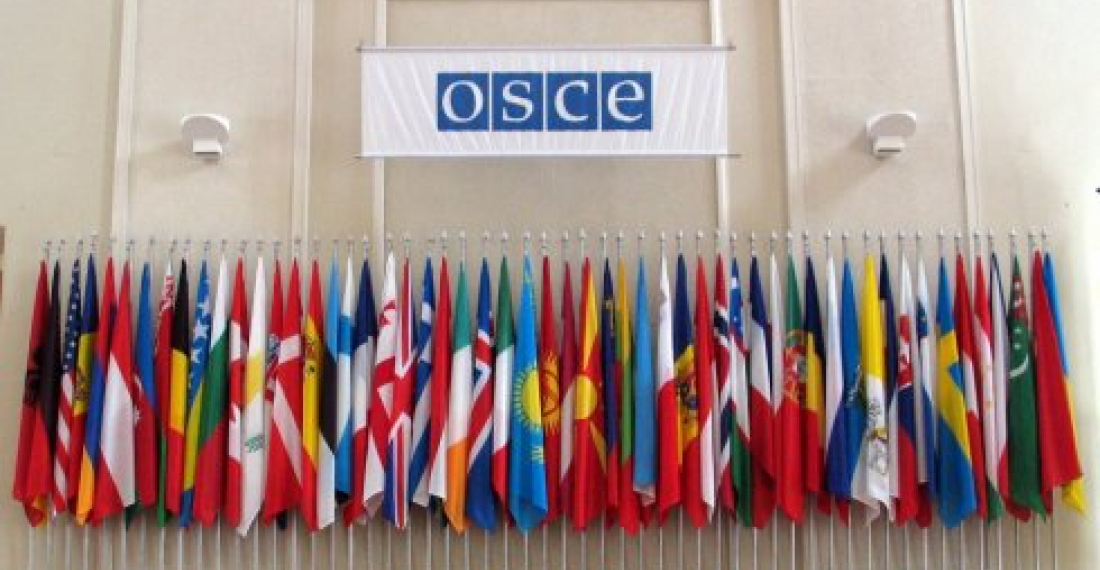Azerbaijan continued to veto the operation of the Yerevan office of the Organisation for Security and Co-operation in Europe (OSCE) when the matter was discussed in the organisation's Permanent Council on Thursday (9 February). The Permanent Council of the OSCE meets in Vienna every week, and brings together the Ambassadors of the fifty-seven member states. Azerbaijan blocked the proposal on extending the mandate of the OSCE Office in Yerevan once more. In the Permanent Council decisions are taken by consensus, and anyone of the 57 member states can block any decision.
Azerbaijan's initial objection was connected to a demining programme that the Office was supporting, but its objections have now been extended to other matters too. Armenia initially retaliated by blocking the mandate of a number of other OSCE operations, but it later softened its stance.
For more background read commonspace analysis here
Several delegations took the floor to criticise the Azerbaijani position. The United States Acting Head of Delegation to the OSCE, Kate Byrnes, stated
"We are very concerned by the situation regarding the OSCE Office in Yerevan. This office, like all OSCE field missions and institutions, is an important element of the work done by this organization to assist participating states with the implementation of their OSCE commitments. Should the Office in Yerevan be forced to close, this will reflect poorly on Azerbaijan and its government's commitment to the OSCE. We urge the government of Azerbaijan to constructively engage in finding a compromise solution as soon as possible that will allow the office in Yerevan to remain open. "
The Azerbaijani mission to the OSCE on Friday issued a long statement lambasting Armenia, the Austrian chairmanship of the OSCE and member states who had criticised the Azerbaijani position. The statement said,
"Over the past months, Azerbaijan took constructive position hoping for finding a solution to the matter. Unfortunately, it was not reciprocated by the participating state that hosts the field mission. Instead, that delegation opted for open blackmailing and blocked the mandates of other field missions," says the statement. "Yet, we have not seen any statement by those delegations which took the floor today condemning such inadmissible actions by Armenia. This casts doubt on sincerity of these delegations and demonstrates lack of constructive engagement on their part to help solve the current stalemate."
"Clearly, we do not see green light at the end of tunnel with regard to the solution of the issue, until we put an end to misinterpretation and abuse of the mandate of the OSCE Office in Yerevan," according to the statement. "We do not trust to the Head of the Office and we do not see authority in the Chairmanship, as well as in the Delegations, which spoke today, to impose the position that activities of the Office are in line with its mandate. This is the responsibility of the Council to decide upon."
"We do not want to go further in investigating the matter. There is mistrust to the Office and it may continue to engage into activities related to the conflict between Armenia and Azerbaijan. This should be rectified with amendments to its mandate indicating that the Office is not entitled to be involved in any activity related to the conflict. This will be a clear signal to the Office and the host-country to refrain from misusing the OSCE field mission," says the statement.
"It is already 3 years that our delegation has been raising concerns over this programmatic activity of the Office and we are fed up with a lack of clarity with regard to the mandate of the Office and apparent attempts to abuse this situation against legitimate interests of Azerbaijan. This should be stopped," noted the Azerbaijani delegation in its statement. "Until the limits for activities of the OSCE Office in Yerevan in all three dimensions clarified through decision of the Permanent Council, we will not join consensus on the extension of its mandate."
Commonspace.eu political editor said that the Azerbaijani position in the OSCE Permanent Council reflects a wider hardening of positions in international fora. "Azerbaijan feels let down by the international community on the Karabakh issue, and is using all the tools at its disposal in order to put pressure both on Armenia, as well as the international community. In diplomacy there is a fine line between pushing for something, and breaking it, and the Azerbaijani brinkmanship in the OSCE Permanent Council is a good example of this. Whilst pushing its case, Azerbaijan, even if it does not intend to do so, is exposing vulnerabilities in the OSCE structure, which is one of the few fora where European security can still be discussed with all sides sitting round the table. The consensus principle is the high price that those designing the CSCE/OSCE format had to accept in order to ensure that all member states, large or small feel ownership of the process of European security and co-operation. This format can only succeed if all those participating show good will and common sense. What is at stake here therefore, is not simply the Yerevan Office, but also the principle of consensus, and all concerned need to act responsibly."
source: commonspace.eu
photo: The flags of the 57 member states of the OSCE. (picture courtesy of the OSCE press office).







